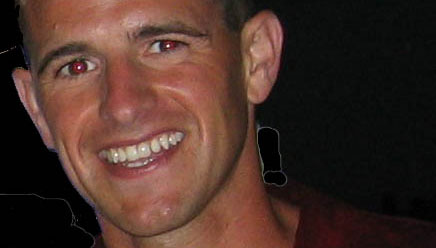A year ago, a good friend send me a copy of Gary Smith’s book, Going Deep, a collection of his longform articles from Sports Illustrated. Smith is a masterful writer who mostly covers sports.
But that’s misleading: he writes about people.
Some are pro athletes; some never make it to college. He writes about the biggest champions of the game; but also about people whose dreams of glory and fame never arrived. He gets to the core of the people he writes about, brings them to life for the reader. Sports is the underlying string that winds through most of his stories, but ultimately he writes about men and women and the challenges they face in life.

Until today, I hadn’t read Smith’s “Walking His Life Away,” published in the July 26, 2004 issue of Sports Illustrated. I wasn’t familiar with Albert Heppner, the athlete profiled in the piece, and wasn’t sure I’d be interested in a man’s dream of Olympic walking glory. But once I started reading, I couldn’t put it down.
One thing Smith does right away is to directly address the fact the Olympic Walking is a sport that most of us laugh at. Smith puts it all down there on the page, then shows us why we should care:
The walkers assembled for the 7:30 a.m. start. They’d all long since made it to the other side of mirth and disdain. They’d all had seven-year-olds follow them and ape their pumping arms and swaying hips. They’d all heard 20-year-olds barrel by in rusting cars and scream Fag! at them on country roads. They’d all shed their need for the world’s approval, attuned their ears and hearts to an inner voice. Except for one.
Al stood out. He was the 5’8″ pied piper of race walking, the 29-year-old with the munchkin’s cackle who was loved by everyone in his fringe fraternity. The one so loud that other walkers would remind him to use his indoor voice. So vulnerable that he’d sob on a stranger’s shoulder after being disqualified from a race. So exuberant that he’d end up on the dance floor at a postrace party, his shirt soaked, juking like no Jew ever juked, encircled by people chanting, “Go, Al! Go, Al! Go, Jiggy!” Rabbi Jiggy. That was just one of his nicknames.
A big reason this story is so powerful is that Smith brings Heppner to life. The story is loaded with stories about the man and his personality. Consider this short paragraph from early on in the piece as Smith talks about Heppner’s competitiveness and fire, and how he could often be a little too zealous:
Al’s competitive lust had cost him before. Once, when he was six and his father’s bike moved ahead of his, he’d pedaled so furiously that he’d pitched over the handlebars and broken his arm. At camp six years later he broke his arm again, astonishing counselors who had never seen a boy dive with such fury in a friendly game of Capture the Flag. Too many times he’d been disqualified from races because he couldn’t restrain his urge to go faster, faster, couldn’t keep both feet on the ground.
And as Smith describes Heppner in the biggest race of his life, he winds back a bit and dots the narrative with small stories about Heppner’s warmth, kindness, and vitality:
“Go, Al!” a fan screamed as the gun sounded and the walkers took off. Who wouldn’t root for him? He was the greeter at the gate, the man who popped up from his moonlighting post behind the customer-service desk at the training center dining hall and showed all the newcomers where to get their mail, their rubdowns, their grub, then helped them haul in all their belongings, thrilled to welcome one and all — Americans and foreigners, swimmers, skiers, shot-putters, shortstops — to the fantasy factory in the Southern California desert. He’d carry his lunch tray to the far table where a new arrival ate alone. He’d take the Honduran cyclist to the airport at 5 a.m., beg the outraged decathlete to make peace with the offending kayaker, concoct nicknames for them all. Hey, V-Dub! Big John Stud, my man! What’s happenin’, Apples? He turned his cramped dorm room into the campus lounge, the gathering place for field trips organized by camp counselor Al to the amusement park, beach, ball games, bars and dance clubs. He turned all these masters of abstruse and exotic athletic skills into the most unexpected thing: a family.
There are at least eight micro-moments in that paragraph, telling details that shape how we see him. It doesn’t take long for the reader to shift from casual interest to active empathy for Heppner.
Smith does a beautiful job intertwining two narratives: the story of the Olympic qualifier race, as Teppner’s fights to hang on to the lead, and the narrative of Teppner’s life and everything he and his family experienced to get to this moment. By the end of the piece, those two narratives merge, and the reader becomes one of those people on the sidelines, rooting for him, urging him on, trying to help him realize his life’s dream.